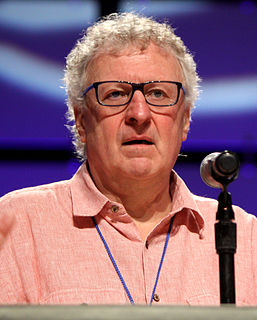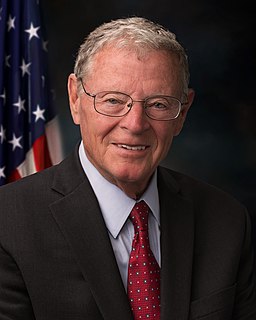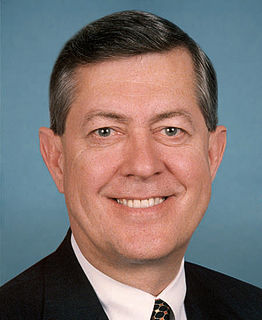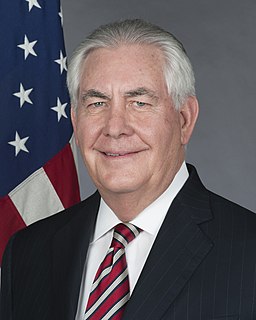Top 266 Libya Quotes & Sayings - Page 4
Explore popular Libya quotes.
Last updated on April 20, 2025.
You can understand Tunisia revolution as a failure to censor the internet. And Libya had that failure too. It's very difficult for governments that are autocratic and don't have broad popular support to be in power when a lot of people have these devices. That was what Arab Spring was about, that people could express this and lead to revolution.
American airstrikes have targeted ISIS in Libya before. Just last fall, another ISIS leader was killed. And I'm told there are several more training camps and we'll likely see more strikes in the coming weeks and months. So the U.S. is watching all this carefully and will strike what they call targets of opportunity whenever they can.
China has been trading technology and systems with Iraq, Iran, Syria, Libya, Pakistan, North Korea now for years and years. Indigenously? No they're not going to have one. But they're getting dangerously close to having one. We can all have reason to suspect. Why would they not if they're trading with these countries?
I think we had an incredible opportunity to capitalize on that right up to Libya. I think we've made a step toward something that might be a mistake. I personally believe Saddam Hussein and Ghadafi are not good guys by any judgement, and there are ways to deal with it beyond what we did. Once you decide to attack, it paints an ill-conceived picture.
In primary school in south-eastern Nigeria, I was taught that Hosni Mubarak was the president of Egypt. I learned the same thing in secondary school. In university, Mubarak was still president of Egypt. I came to assume, subconsciously, that he - and others like Paul Biya in Cameroon and Muammar Gaddafi in Libya - would never leave.
Foreign policy commands attention when it's crisis management. A street revolt breaks out in Egypt or Libya or Kiev and everyone asks, how should the president respond? Now these are important parts of America's role in the world, but they are essentially reactive and tactical. The broader challenge is to lay down a longer-term strategy that endures after the crisis of the moment.
I'm outraged by the attacks on American diplomatic missions in Libya and Egypt and by the death of an American consulate worker in Benghazi. It's disgraceful that the Obama Administration's first response was not to condemn attacks on our diplomatic missions, but to sympathize with those who waged the attacks.
The Arab awakening has been, up to now, a lot about freedom from dictatorial regimes - Syria, Yemen, Libya, Tunisia, Bahrain and Egypt. But once you got freedom from, then you need freedom to. Freedom from is about destroying things. Freedom to is about constructing things, constructing the rule of law.
I contend that there really are no more con men. There's no need for con men anymore. There's no need for the very sophisticated, suave guy, the well-dressed guy. Today, you steal with the computer from thousands of miles away - from China, from Libya, from Hong Kong. Your victim's never going to see you, so there's no need to be any of that.
Both China and Russia felt duped by the U.N. 'no-fly' zone resolution regarding Libya in 2011 that eventually led to the ouster of Libyan dictator Moammar Gadhafi. China and Russia had abstained from the Libyan resolution, and neither country plans to make what they regard as a similar mistake again.
The reality is that [Barack] Obama has some 15 countries in the current Libya coalition. President Bush put together close to 50 countries for the Afghan coalition, some 40 countries for the Iraqi coalition, more than 90 countries for the Proliferation Security Initiative and over 90 countries in the Global War on Terror.
Looking more deeply at the emergence of ISIS or the chaos that exists in Syria, Yemen and Libya would clearly raise crucial doubts about reliance on military intervention and drone warfare as adequate counterterrorist responses and would call attention to the detrimental effects of US "special relationships" with Israel and Saudi Arabia.
If you look in the Muslim World right now, the Shia, the Sunni Muslims are standing at the brink of a pit of fire started by Western intervention and influence in pitting them against each other by exploiting their divisions. So the stage is set for war in that area of the world that would destroy that area as completely as what they are calling the failed state Libya making Syria, Afghanistan and Iraq failed states.
The events in Crimea themselves have nothing to do with what happened in Iraq, Afghanistan, Libya and other regions. In my opinion, when the world becomes unipolar, or when someone tries to make it so, then this one pole has the illusion that all issues can be settled through power. And only when there is a balance of power does the desire to negotiate appears.
Growing up in the Libya of the 1970s, I remember the prevalence of local bands who were as much influenced by Arabic musical traditions as by the Rolling Stones or the Beatles. But the project of 'Arabisation' soon got to them, too, and western musical instruments were declared forbidden as 'instruments of imperialism.'
We understand that ISIS is a group that's growing in its governance of territory. It's not just Iraq and Syria. They are now a predominant group in Libya. They are beginning to pop up in Afghanistan. They are increasingly involved now in attacks in Yemen. They have Jordan in their sights. This group needs to be confronted with serious proposals.
I mean, you can agree or disagree with Iraq or Afghanistan, but by the way, now the great campaigning cause out there is the absence of intervention in Syria. And then in Libya, it's partial intervention. And that doesn't really explain why some countries that have literally nothing to do with the interventions in the Middle East end up getting targeted.
America was the funder of petro-dictatorships. We treated all these countries as basically big, large gas stations: Libya station, Iraq station, Iran station, Egypt station, Syria station, and all we asked of them were three things: Keep your palms open, your prices low and don't bother Israel too much, and you can do whatever you want to your own people.
In Libya, I did well at school because I was clever. In Egyptian public school, I got the highest marks for the basest of reasons. And in the American school, I struggled. Everything - mathematics, the sciences, pottery, swimming - had to be conducted in a language I hardly knew and that was neither spoken in the streets nor at home.
Everywhere the Salafi are pushing by saying, "We are the guardian, and we are resisting any kind of relationship to the West or provocation coming from the West." And internally, it's unsettling the whole situation. Now in Tunisian, in Libya, in Syria, in Egypt, the clash between the literalists and - the Islamists or the reformists is something which is going to be part of what we have to deal with as to the future of America.
We have a strong military deployment in Iraq and Afghanistan. In countries like Syria, we need a diplomatic breakthrough to end the war. In Libya, the country must first of all be stabilized to stop IS. This means supporting the Libyan government, including in terms of security. We don't want to repeat the mistakes of the past in that country. The situation is extremely dangerous and the next days could be decisive.
Obviously, the United States' own founding principles are self-determination. And I think what the United States and our allies want to do is to enable the Syrian people to make that determination. You know, we've seen what violent regime change looks like in Libya and - and the kind of chaos that can be unleashed.
Today, the government of a free Afghanistan is fighting terror, Pakistan is capturing terrorist leaders, Saudi Arabia is making raids and arrests, Libya is dismantling its weapons programs, the army of a free Iraq is fighting for freedom, and more than three-quarters of al-Qaida's key members and associates have been detained or killed. We have led, many have joined, and America and the world are safer.
Of course, there is no question that Libya - and the world - will be better off with Gaddafi out of power. I, along with many other world leaders, have embraced that goal, and will actively pursue it through non-military means. But broadening our military mission to include regime change would be a mistake.
At the time, we were mad at Moammar Gadhafi, which resulted in us bombing all over Libya and killing a bunch of people, but not him. Then Ronald Reagan gets up and says we're not trying to kill him, we're just dropping bombs. You can kill all the Libyans you want, but legally you can't try to kill the leader.
Currently, the United States has troops in dozens of countries and is actively fighting in Iraq, Syria, Libya, and Yemen (with the occasional drone strike in Pakistan). In addition, the United States is pledged to defend 28 countries in NATO. It is unwise to expand the monetary and military obligations of the United States given the burden of our $20 trillion debt.
At no time in the past, now or in the future has or will Russia take any part in actions aimed at overthrowing the legitimate government. I'm talking about something else right now - when someone does this, the outcome is very negative. Libya's state is disintegrated, Iraq's territory is flooded with terrorists, it looks like the scenario will be the same for Syria, and you know what the situation is in Afghanistan.
Women in the Arab world have a rich history in their active participation in political change from the Algeria revolution against the French occupation to the most recent revolution in Tunisia, Egypt, Libya among other countries. The question is not their participation. Their question is the incorporation of women's voices fully in the new definitions of the countries where change has happened.
It would seem to be the case that pressure on Iran to acquire nuclear weapons is almost totally driven by their need for a deterrent capability to avoid the fate of Iraq, Libya. The use of American military force in Syria thus sends exactly the opposite message as supposedly desired to the leadership in Tehran - and to others. North Korea has been dealt with diplomatically because it has the bomb and might use it if provoked.
Obama's decision to leave, to not sustain the victory that resulted after eight years of fighting, from 2003 to 2011 in Iraq, was another incredibly stupid decision. It was totally based on politics, not based on any notion of national security. It's a nightmare for our national security. And then you have the Libya intervention.
You look at Libya, and you go, "Jesus, why the hell did we do that?" That's beyond stupid. That's so irresponsible and dangerous for our national security and frankly for the national security of Europe because you go and you look at where a lot of these refugees are coming out of, they're coming out of Misrata and Tripoli.
Countries such as Iraq, Iran, Libya and Syria, which support terrorist organizations and use terror to achieve their objectives, are precisely the same countries working tirelessly to acquire weapons of mass destruction. This combination creates a new dimension to the threat on our way of life in the 21st century.
Even after the whole democratization process, it's quite clear that the United States are not seen in a positive way in all the Muslim-majority countries - in Egypt, in Libya, even in Tunisia - even though we have now a kind of trying to be recognized as democrats by the Islamists who are running, you know, Tunisia and Egypt. But the popular sentiment is very, very negative.
Strifes will arise through the period. Watch for them near the Davis Strait in the attempts there for the keeping of the life line to land open. Watch for them in Libya and in Egypt, in Ankara and in Syria, through the straits about those areas above Australia, in the Indian Ocean and the Persian Gulf.
The people on the streets of Egypt and Tunisia and Libya and Syria and Iran have done more to defeat the ideology of Al Qaeda than anything that the United States has done. They have shown that there is a third way, that with peaceful protest you can have an end to dictatorship and a role for human dignity, a role for your religious faith in society.
I say that the United States of America is a unique experiment in history. I believe in American exceptionalism. I wasn't for sending ground forces into Libya. It would have been counterproductive, but we are an inspiration to these people. I know because I've looked them in the eyes, and they looked at me. They look to America for inspiration and leadership.
I've always said that if you want to find out what's going on in Iraq or Afghanistan or Libya, I'll give you a choice. You can either read The New York Times, Washington Post, Wall Street Journal, Newsweek, Rolling Stone, or you can go to the NATO, ISAF, multi-national force websites where they have their own news releases. Who will give you a more accurate picture? I'll take the mainstream media.
I am a supporter of much of the Arab Spring, as a matter of indigenous self-determination. So, I see the United States' role in Libya as an appropriately restrained one in providing some international support for the work of those trying to bring democratic change against a regime that has undoubtedly been dictatorial, particularly in the past twenty years.
After Iraq, there's been Libya, there's Syria, and the rhetoric of, you know, democracy versus radical Islam. When you look at the countries that were attacked, none of them were Wahhabi Islamic fundamentalist countries. Those ones are supported, financed by the U.S., so there is a real collusion between radical Islam and capitalism. What is going on is really a different kind of battle.

















































